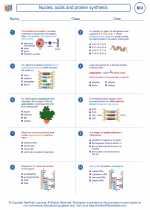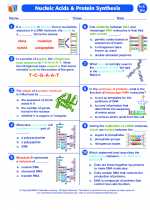Dark Nebulae
What are Dark Nebulae?
Dark nebulae are interstellar clouds of dust and gas that are so dense that they obscure the light from stars and other celestial objects behind them.
Characteristics of Dark Nebulae
- Opacity: Dark nebulae are opaque and block the light from background stars, making them appear as dark patches in the night sky.
- Dust and Gas: They contain a high concentration of dust and gas, often in the form of molecular clouds.
- Density: Dark nebulae are extremely dense, with the dust and gas tightly packed together, leading to their light-blocking properties.
Study Guide for Dark Nebulae
Formation and Composition
Dark nebulae are formed from the gravitational collapse of molecular clouds, leading to the accumulation of dust and gas. The composition of dark nebulae primarily includes molecular hydrogen, carbon monoxide, and other organic molecules.
Role in Star Formation
Dark nebulae serve as the birthplaces for new stars and planetary systems. The gravitational forces within dark nebulae cause the gas and dust to collapse, initiating the process of star formation.
Observational Significance
Dark nebulae are important observational targets for astronomers, as they provide insights into the early stages of star and planet formation. By studying dark nebulae, astronomers can gain a better understanding of the physical processes involved in the evolution of interstellar matter.
Conclusion
Dark nebulae play a crucial role in the formation of stars and planetary systems, and their study is essential for advancing our understanding of the universe's evolution.
[Dark Nebulae] Related Worksheets and Study Guides:
.◂Biology Worksheets and Study Guides High School. Nucleic acids and protein synthesis

 Worksheet/Answer key
Worksheet/Answer key
 Worksheet/Answer key
Worksheet/Answer key
 Worksheet/Answer key
Worksheet/Answer key
 Vocabulary/Answer key
Vocabulary/Answer key
 Vocabulary/Answer key
Vocabulary/Answer key
 Vocabulary/Answer key
Vocabulary/Answer key
